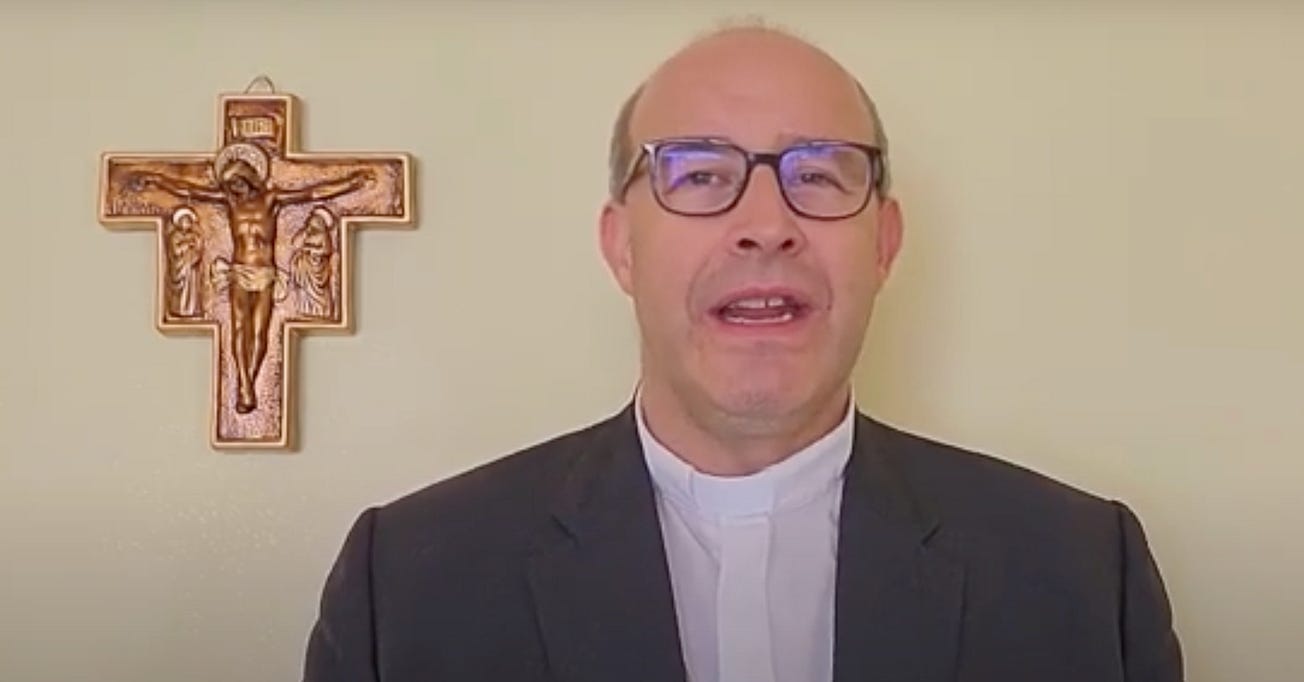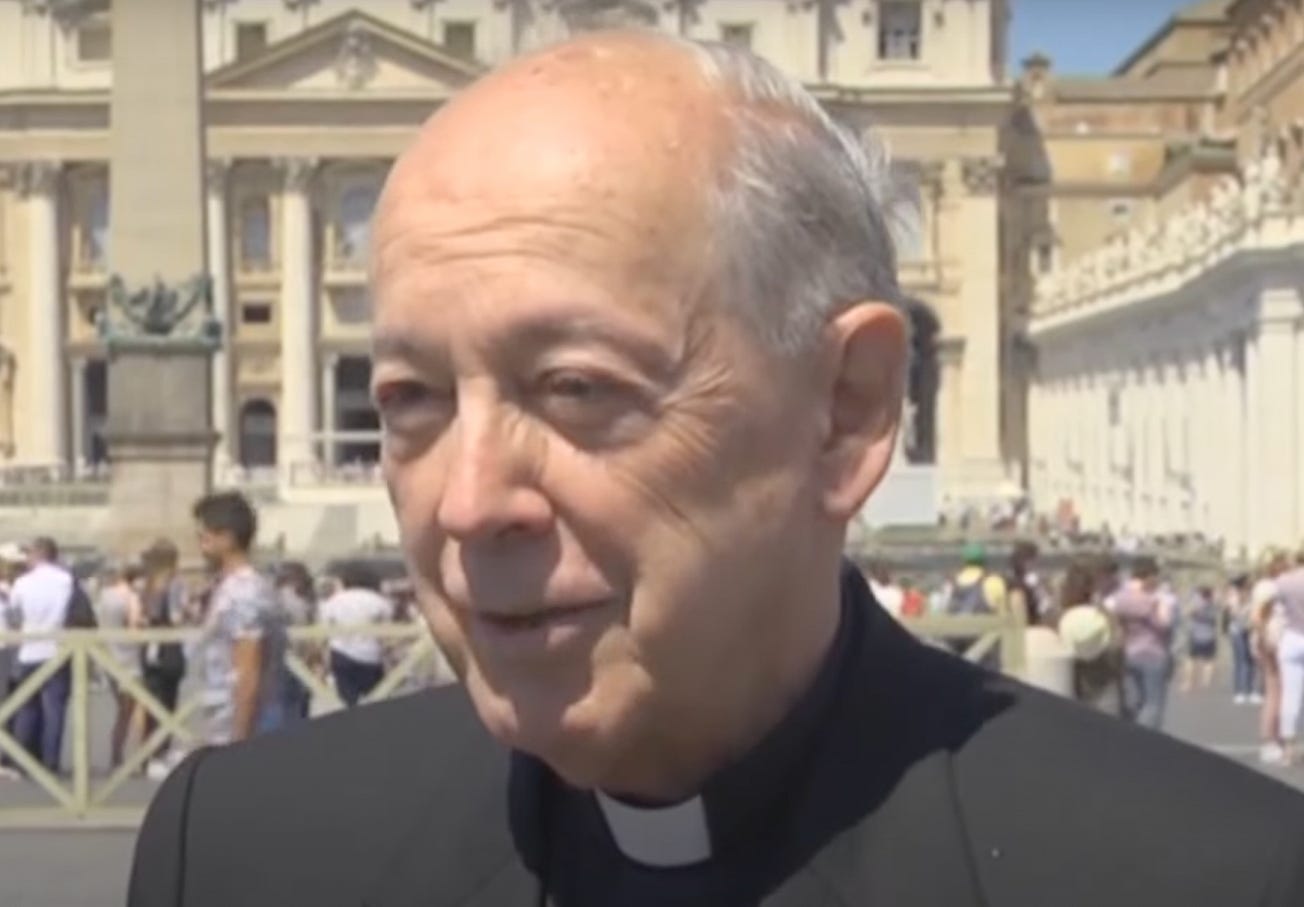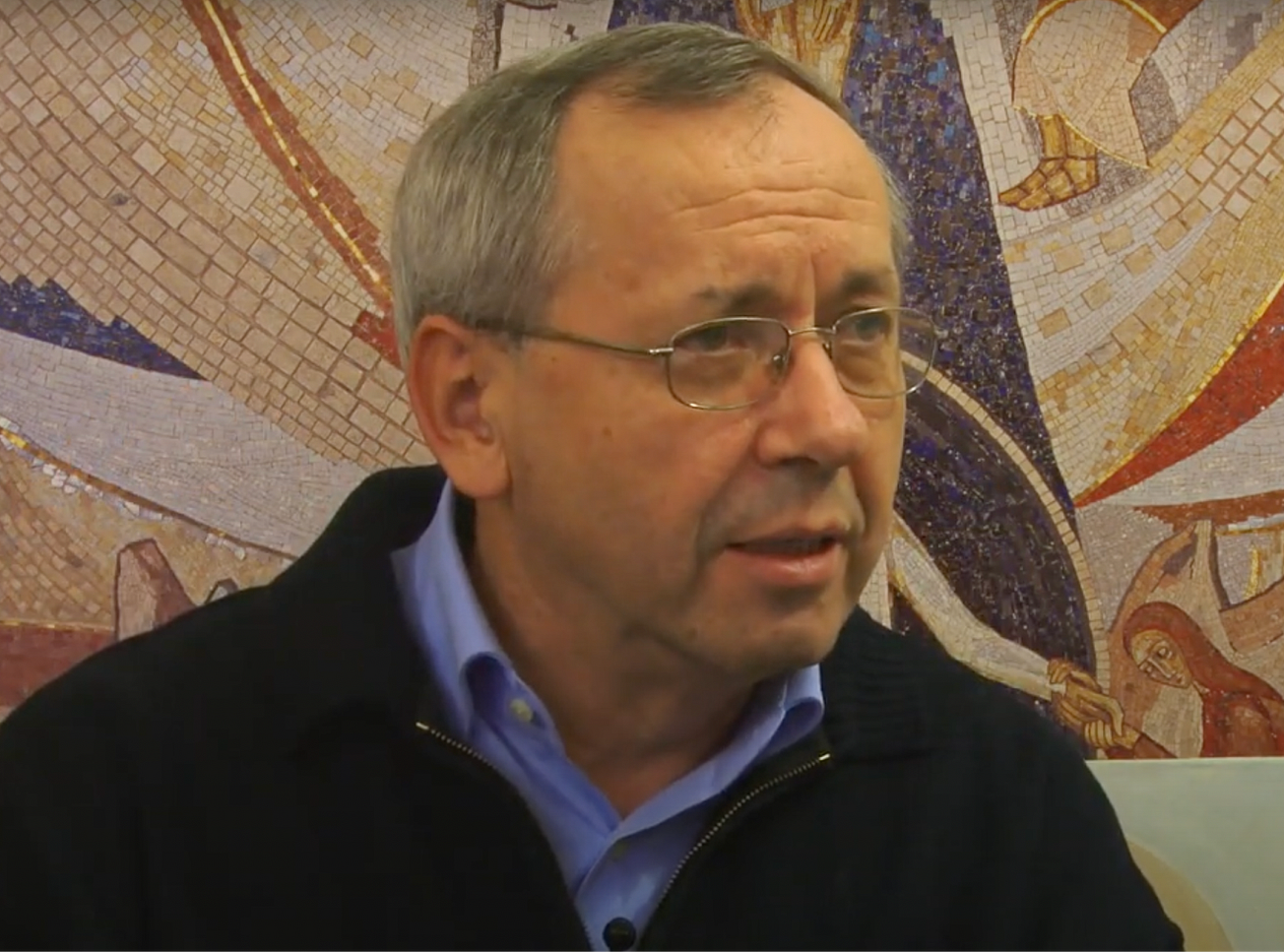Last week, Bishop Georg Bätzing, the leader of the German bishops’ conference, gave an interview in which he renewed calls for the Church to bless same-sex couples, ordain women, and sanction inter-Communion with Protestants.
Surprisingly, the Bishop of Limburg framed himself, and his support for wholesale change in Church teaching, as “conservative,” even as he signaled impatience with the Vatican’s failure to give the Church in Germany carte blanche on those matters.
What Bätzing is asking for, and what he hopes to conserve, offers a case study in a rift that has been growing steadily, for some years now, between the Church in Germany and the rest of the world.
“I would describe myself as conservative because I love this Church and enjoy devoting my life and my strength to it. But I want it to change,” Bätzing said in an interview with Herder Korrespondenz.
Still reasonably new in post - he was elected at the beginning of last year - Bätzing’s comments have drawn attention for their radical challenge to settled and unchangeable Church teaching, as has his self-description as “conservative.”
The borrowed cultural terms “conservative” and its antonym “liberal” do not clearly communicate much in the language of the Church. But if Bätzing intended to suggest he tends towards doctrinal and disciplinary orthodoxy, it is clear that he is easily persuaded against it.
In 2019, he co-chaired a working group of theologians, both Catholics and Protestants, which concluded that "mutual participation” in “the Lord's Supper/Eucharist” is “theologically justified,” despite Protestant celebrations lacking any sacramental character, and Protestants themselves not believing in the true nature of Catholic Mass. At the time, Bätzing said that he had joined the committee with reservations about the proposal but found “the theological justification in this basic paper is so clear to me that I did not want to and could not escape.”
In his interview last week, Bätzing indicated he has undergone a similar conversion on Church teaching regarding female ordination. While insisting it is important to “honestly state” the Church’s teaching and rationale for the reservation of ordination to men alone, he seems no longer to be convinced.
“I must honestly say that I am also aware that these arguments are becoming less and less convincing,” he said. “There are well-developed arguments in theology in favor of opening up the sacramental ministry to women as well.”
If the bishop, elected to speak for his peers in Germany, is less and less convinced by basic Church teaching, what exactly is he anxious to conserve? A cynic might wonder if he is more concerned with the Church’s institutional footprint in the country than actually advancing the Gospel.
Every publicly registered Catholic in Germany has a portion of their taxes sent directly to the Church by the government, worth $7.75 billion - with a B - to the bishops in 2019. Yet, even with income at a record high, Catholics are deserting the pews, and renouncing the faith for tax purposes, in record numbers.
In 2019, a record 272,000 Germans Catholics left the Church. In 2020, a survey found that 30% of those remaining could “imagine leaving the Church soon.” Numbers of taxpaying Catholics are now projected to halve by 2060.
For their own part, the German bishops have long contended that the way to halting this mass exodus has been to move Church teaching along with the times, and Bätzing is merely their latest herald in this mission.
The “binding synodal process,” which they formally kicked off last year in partnership with the Central Committee of German Catholics, has the stated aim of ushering in wholesale change to Church teaching across a range of issues, including marriage, sexuality, and sacramental doctrine and discipline. The more-or-less explicit aim is to make Church teaching more reflective of modern secular morality and values and, so the theory goes, more appealing to believers.
Last week, Bätzing reiterated that rationale, saying that the Church needed to find “solutions” that are “suitable for their cultural context and prevent the gap between the Gospel and the respective culture from becoming ever wider.”
Of course, Pope Francis has told the Germans the answer is not for the Gospel to change to suit the times. In a letter to the German bishops in 2019, Francis warned them against giving in to “a new Pelagianism” that would “tidy up and tune the life of the Church, adapting it to the present logic.”
Francis urged them to avoid becoming a “well organized and even ‘modernized’ ecclesiastical body, but without soul and evangelical novelty.” Shortly thereafter, the Congregation for Bishops issued a forensic rejection of the Germans’ synodal plan, its subject matter, structures, and proposed outcomes. They have gone ahead anyway.
Near the top of the pile on the pope’s desk for 2021 will be what to do if the Germans continue to go ahead with implementing their agenda without Roman approval - and against Roman instruction.
So far, the tactic has been for the Germans to effectively talk past the Vatican, affecting not to hear or understand clear instructions on what they are proposing. “I try to understand that and suspect that Rome is under a lot of pressure regarding how to keep together the universal church with so many different cultural influences,” Bätzing said last week, while making it clear that he and his brother bishops are losing patience with Roman impediments to their reforms.
The signs are that 2021 may be the year matters come to a head.
It is not hard to encounter stories of priests in Germany offering quasi-liturgical blessings to divorced and civilly remarried couples, even same-sex couples in some places in Germany. These have been done more-or-less discreetly, without official sanction or comment by the bishops, leading to a kind of “don’t ask, don’t tell” arrangement in some places. But, Bätzing signaled last week, that could be about to change.
“We need solutions that are not only effective in private, but also have public visibility -- yet make it clear that no marriage is being solemnized,” the bishop said.
According to many around the German bishops’ conference, Bätzing’s ascension followed his predecessor, Cardinal Reinhard Marx’s inability to deliver Roman agreement over the synodal way. Despite his self-description as a “conservative,” he was - at least according to several senior German bishops - elected to bring in radical reform, Rome or no Rome.
As seen in recent efforts during the Amazon synod to overturn the universal discipline of clerical celibacy, it is clear Pope Francis is not easily bounced into seismic reform, and it remains to be seen if Bätzing and the Germans will be willing to “go public” on their own. But if they do, it could lead to the defining moment of the Francis pontificate.




